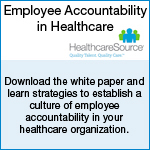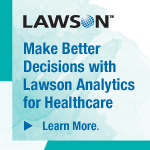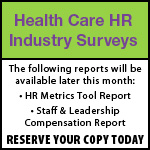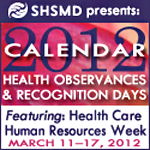ASHHRA eNews Pulse
ASHHRA
October 11, 2011All I can say is "wow." For those who missed our annual conference in Phoenix, I am happy to report it was well attended by our members, and the many supportive exhibitors and sponsors, and our speakers were absolutely "flat out on the mark!"
Many thanks to Karmen Reid and Tom McCawley and their committee for an absolutely terrific ASHHRA Chapter Leadership Workshop on Saturday. We played Jeopardy, courtesy of Sharon Allen, and found out exactly what we don’t know about ASHHRA! Kidding, of course!
The Advocacy Committee, led by Mike Paruta and with guest speakers Roger King and Jim Trivisonno, conducted yet another powerhouse legislative session on Saturday afternoon. This is always the best session to hear the latest information and to be in tune with all the latest in the world of labor and legislation.
On Sunday morning I was led into the conference hall with a great marching band, Boomtown Percussion, for the Opening Ceremony. They were wonderful and led us in singing our national anthem, and shortly after their departure from the hall we took time to remember our victims and heroes with a tribute to 9/11.
Immediate Past President Jeff Payne unveiled our new brand and discussed the history of why and how the board chose this new look! Great job, Jeff, and kudos to Past President Dan Zuhlke and the entire ASHHRA staff for their efforts with this initiative! The highlight of the morning was our keynote opening speaker Chip Madera. I have heard Chip speak on many occasions and his material is always crisp and state of the art. He smacked a grand slam with the group! We were all engaged after his presentation, and we were then led to the exhibit hall opening by our great marching band!
Monday’s highlight was the Motivational Breakfast with keynoter, actor, producer, and author Henry Winkler. "The Fonz" gave us an inspiring story of his early challenges and learning disability towards his successful career and took time for a Q and A session. He was given a standing ovation at the close of his very motivational speech. In the green room, after his presentation, Henry told me that the questions he received were the most challenging and best ones he has ever received! Way to go ASHHRA! I told him that his responses were superb.
Tuesday’s general session presentation was delivered by health care futurist and author Ian Morrison. Ian’s portrayal of the future of health care in America was insightful and thought provoking. His keen sense of humor in the delivery of such a serious and sobering topic helped to make the entire experience very worthwhile. Ian was very well received and appreciated.
There are so many aspects of the conference that were so important including all of the awards that were presented to individuals and chapters. I was deeply moved to observe the presentation of the very first Gary Willis awards by ASHHRA and AHA Solutions. Gary was a dedicated board member and ASHHRA member for many years, but most importantly, he was my dear friend and was a "big brother" to me during our time on the board together. I know that he is smiling that great big Montana smile, in heaven, seeing that his memory was honored in such a way.
I would like to personally thank everyone involved with the tremendous success of our conference, including our top notch ASHHRA staff, a highly engaged board of directors, our annual conference committee led by Nancy Dinon, and all of our ASHHRA Committee chairs. Most importantly, I would like to thank the many exhibitors and vendors who make the conference possible. ASHHRA member attendees, you are the best and we certainly appreciate you spending your time with us in Phoenix. As we all said goodbye in Phoenix, I must tell you that there was a tremendous emptiness in me knowing that it will be some time before we meet again as friends in such a dynamic learning environment. However, I look forward to seeing all of you in Denver next year! President-Elect Irma Pye, the board, ASHHRA staff, and committees will be working hard to make it the best conference ever!
Phoenix is a wrap!
Until next month,
Bob Walters, SPHR
Corporate Director, HR Operations
Health First, Inc.
3550 North Harbor City Blvd.
Melbourne, FL 32932-0069
(321) 434-1957
bob.walters@health-first.org
Would your chapter members value getting HRCI credits for programs they attend? Here’s a combination of how to make it happen and learning experiences.
Visit http://www.naylornetwork.com/ahh-nwl/pdf/ASHHRA_News_HRCI_Credit_Article.pdf to view the full article online.
Visit http://www.ashhra.org/resources/general_resources.shtml to view the full article online.
SOURCE: FOXNEWS.COM
Visit http://www.foxnews.com/us/2011/10/03/louisiana-hospital-to-ban-odor-smoke-on-workers-clothes/?test=latestnews to view the full article online.
SOURCE: THE ADVISORY BOARD COMPANY
Visit http://www.advisory.com/Daily-Briefing/2011/09/30/Hospital-mass-layoffs-on-the-rise to view the full article online.
SOURCE: THOMSON REUTERS
Visit http://www.factsforhealthcare.com/workforce/ to view the full article online.
Healthcare organizations constantly face a unique need to add new staff while challenging and satisfying their existing employees. By harnessing the power of integrated talent management systems, health care institutions can successfully address both issues.
Visit http://www.naylornetwork.com/ahh-nwl/pdf/OMHS_Gaining_WF_Insight_with_Talent_Management_Technology.pdf to view the full article online.
SOURCE: HOSPITAL PHYSICIANS ONLINE
Visit http://hospitalphysicians.com/2011/09/17/american-hospital-physicians-paid-higher-than-worldwide-counterparts/ to view the full article online.
SOURCE: PHYSICIANS NEWS DIGEST
Visit http://www.physiciansnews.com/2011/09/27/how-to-develop-a-fair-physician-compensation-plan/ to view the full article online.
SOURCE: WEST CENTRAL TRIBUNE
Visit http://www.wctrib.com/event/article/id/85414/ to view the full article online.
SOURCE: THE WINDSOR STAR
Visit http://www.windsorstar.com/health/Late+hours+affect+hospital+care/5509850/story.html to view the full article online.
SOURCE: EMPLOYEE BENEFIT NEWS
Visit http://ebn.benefitnews.com/news/hospital-employees-highest-healthcare-spenders-thomson-reuters-2717571-1.html to view the full article online.
SOURCE: PHYSICIANS WEEKLY
Visit http://www.physiciansweekly.com/Features/11_34/surgeon_sleep_deprivation.html to view the full article online.
SOURCE: HEALTH LEADERS MEDIA
Visit http://www.healthleadersmedia.com/content/MAG-268318/The-Hospital-of-the-Future to view the full article online.
SOURCE: KAISER HEALTH NEWS
Visit http://capsules.kaiserhealthnews.org/index.php/2011/10/things-may-get-worse-for-worst-hospitals-study-warns/ to view the full article online.
Visit http://www.naylornetwork.com/ahh-nwl/pdf/Hire_Right_HR_HRPulse_article_rev.pdf to view the full article online.







